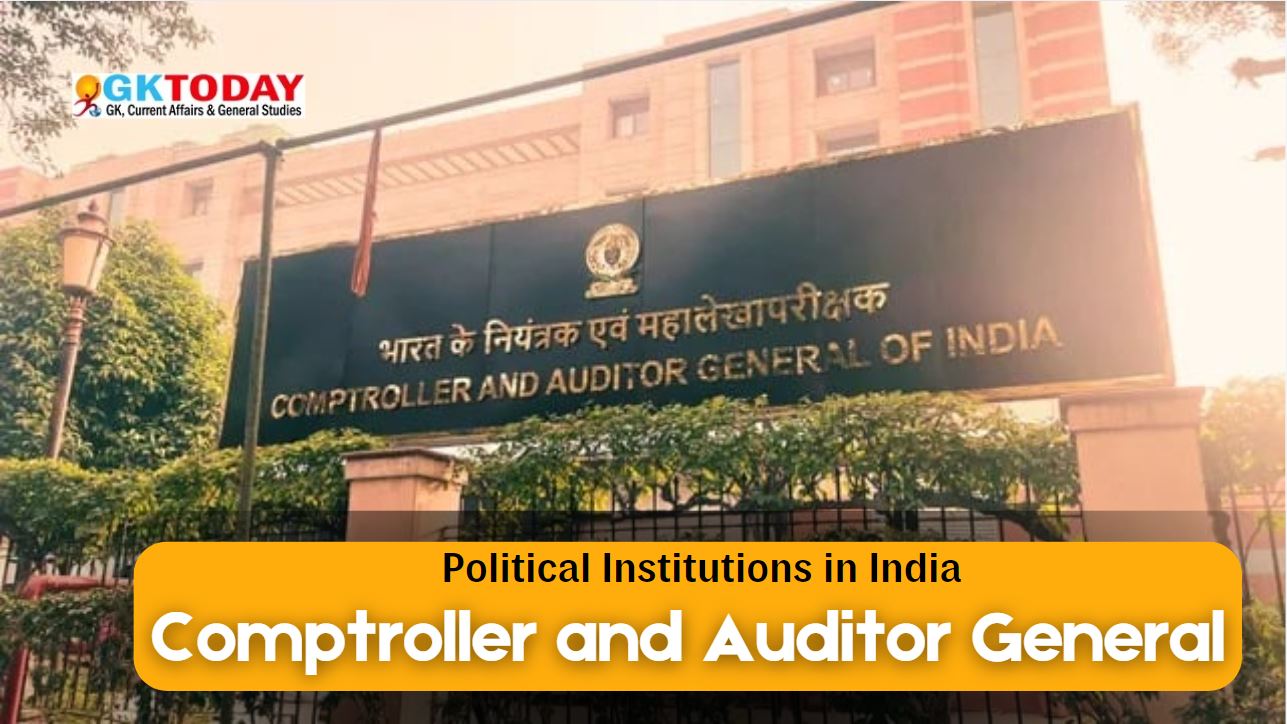Comptroller and Auditor General of India [UGC-NTA NET Political Science]
The Comptroller and Auditor General (CAG) of India is a very important institution in the country’s financial governance framework. Established under Article 148 of the Constitution of India, the CAG plays important role in ensuring transparency and accountability in government expenditure.
Constitutional Provision
Article 148 of the Constitution of India establishes the office of the CAG. The CAG is appointed by the President of India. This appointment ensures that the CAG operates independently of the executive branch.
Tenure and Conditions of Service
The CAG holds office for a term of six years. The retirement age for the CAG is 65 years. The process for removal mirrors that of a High Court judge, ensuring a level of protection for the officeholder. This framework underlines the importance of independence in the CAG’s role.
Functions and Responsibilities
The CAG has several key functions:
- Auditing the accounts of the Union and State governments.
- Ensuring public funds are spent according to the law.
- Conducting performance audits to evaluate government programs.
- Reporting on the financial position of the government and public sector undertakings.
These functions are vital for maintaining fiscal discipline and accountability.
Types of Audit
The CAG conducts three main types of audits:
- Financial Audit: Examines financial statements and accounts.
- Compliance Audit: Checks adherence to laws and regulations.
- Performance Audit: Evaluates the efficiency and effectiveness of government programs.
Each type of audit serves a distinct purpose in safeguarding public resources.
Reporting
The CAG submits reports to the President of India. These reports are then laid before Parliament. For state audits, reports are sent to the Governors of States. This reporting mechanism ensures that legislative bodies are informed of the financial health of the government.
Significance
The CAG acts as a guardian of public funds. Its role enhances transparency and accountability in government financial operations. The CAG is crucial for maintaining the integrity of financial governance in India.
Independence
The CAG operates independently of the executive branch. The salary and conditions of service for the CAG are determined by Parliament. This independence is essential for the credibility of the audits conducted.
Additional Facts
The first CAG of India was V. Narahari Rao, who held office from 1950 to 1963. The CAG is also a member of the International Organisation of Supreme Audit Institutions (INTOSAI). The office is headquartered in New Delhi, serving as the central hub for auditing activities.
Recent Developments
There is an increasing focus on performance audits and social audits. The CAG has begun to incorporate technology and data analytics in its auditing processes. These advancements aim to improve the efficiency and effectiveness of audits.
CAG and the Public Accounts Committee (PAC)
The PAC examines reports submitted by the CAG. This parliamentary committee plays a key role in financial oversight. It ensures that the findings of the CAG are scrutinised and acted upon.
CAG and the Finance Commission
The CAG provides critical information and data to the Finance Commission. This data is essential for distributing financial resources between the Union and States. The collaboration between these entities strengthens fiscal federalism in India.
CAG’s Role in the Budget Process
Before the budget is presented to Parliament, the CAG audits the government’s accounts. This audit helps ensure that the budget is based on accurate financial information. It is important step in the budgetary process.
CAG and the Right to Information (RTI)
Under the Right to Information Act, the CAG’s reports are accessible to the public. This accessibility promotes transparency and allows citizens to hold the government accountable for its financial decisions.
CAG’s International Role
The CAG engages in capacity building and knowledge sharing with audit institutions in other countries. This international collaboration enhances the effectiveness of public auditing globally. It also allows for the exchange of best practices in financial governance.


